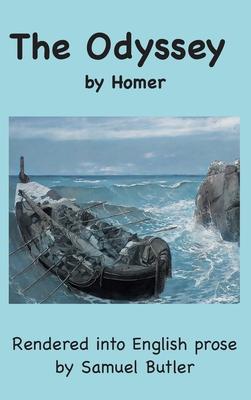The Odyssey was originally composed in Homeric Greek around the 8th or 7th century BC and, by the mid-6th century BC, had become part of the Greek literary canon. In antiquity, Homer's authorship of the poem was not questioned. Still, contemporary scholarship predominantly assumes that the Iliad and the Odyssey were composed independently and that the stories formed part of a long oral tradition. Given widespread illiteracy, the poem was performed by an aoidos or rhapsode and was more likely to be heard than read.
Crucial themes in the poem include the ideas of nostos "return"), wandering, xenia ("guest-friendship"), testing, and omens. Scholars still reflect on the narrative significance of certain groups in the poem, such as women and slaves, who have a more prominent role in the epic than in many other works of ancient literature. This focus is especially remarkable when contrasted with the Iliad, which centers on the exploits of soldiers and kings during the Trojan War.
The Odyssey is regarded as one of the most significant works of the Western canon. The first English translation of the Odyssey was in the 16th century. Adaptations and re-imaginings continue to be produced across a wide variety of media. In 2018, when BBC Culture polled experts worldwide to find literature's most enduring narrative, the Odyssey topped the list.
